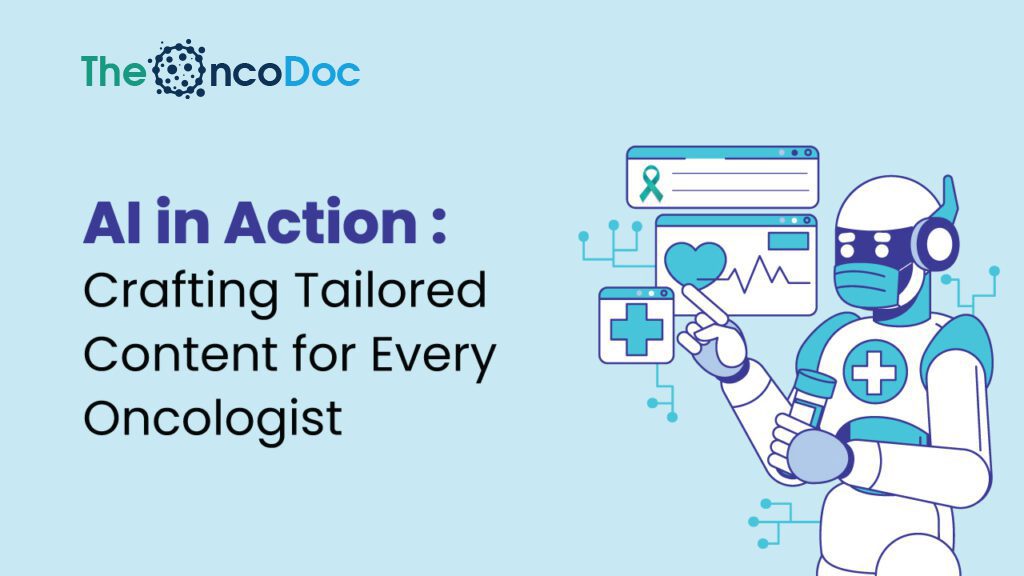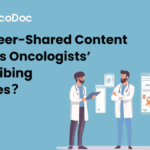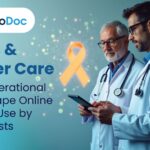Introduction
The age of technology has revolutionized the way medical practitioners obtain information.
For oncologists, keeping abreast of the most current research, treatment guidelines, and clinical guidelines is essential but time-consuming.
“Personalization is not a buzzword’s an imperative in oncology, where sub-specialties need highly relevant content to gain engagement and clinical traction.”
Studies validate that personalized content doubles the engagement level to 40% over mass communications (McKinsey, 2023). For oncologists, with their information load, AI-based personalization ensures only the most relevant updates. This article addresses:
- The AI contribution to oncologists’ content personalization.
- Key metrics of engagement validating its success.
- Why customized content promotes clinical decision-making.
The Future of AI in Personalizing Oncology Content
1. Understanding Oncologists’ Sub-Specialties:
Oncology is a broad discipline with several sub-specialties:
- Medical Oncology
- Haematology-Oncology
- Radiation Oncology
- Surgical Oncology
Algorithms from AI monitor user behavior- article clicks, page duration, and download behaviour-to divide oncologists into specialized interest groups.
2. Dynamic Content Suggestions
AI doesn’t only classify; it also improves and learns. For instance:
- If a haematologist-oncologist is repeatedly exposed to CAR-T cell therapy news, the system ranks similar content.
- If a radiation oncologist expresses interest in proton therapy, AI presents related studies and case reports.
“Generic medical news is skipped over; personal observations are listened to.”
3. Predictive Analytics for Higher Engagement
AI predicts what people will like based on:
- Prior involvement (e.g., a reader of lung cancer studies will most likely involve themselves again).
- Peer influence (content trending among similar specialists).
- Timeliness (breaking research in their niche).
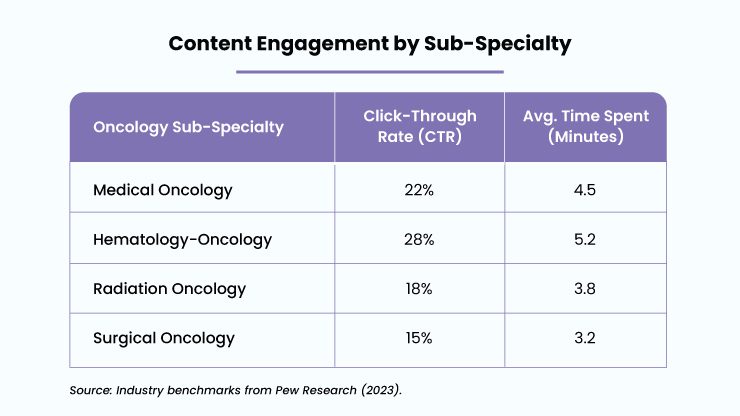
Key Takeaways: How AI-Powered Personalization Drives Engagement?
1. Improved Open Rates & Click-Throughs: 42% more often than generic ones are opened (HubSpot, 2024). Oncologists are 3x more likely to engage with content related to their specialty.
2. Less Information Fatigue: 67% of oncologists report they are overwhelmed by redundant updates (AMA, 2023). AI filters out noise, only showing them high-signal content.
3. Strengthened Continuing Medical Education (CME) Implementation: Artificial Intelligence (AI)-generated CME suggestions improve completion rates by 35% (Accenture, 2024).
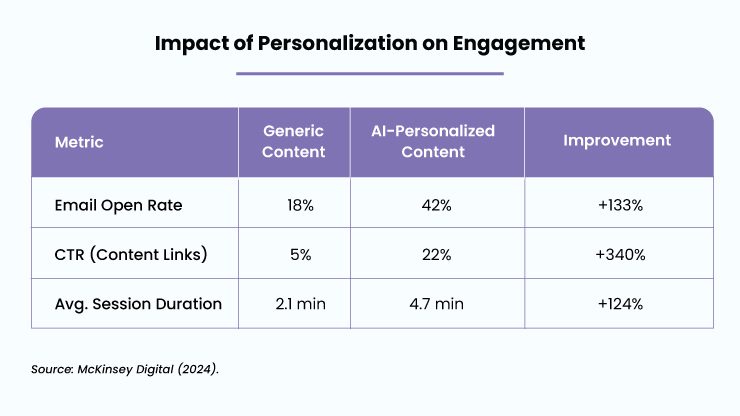
Why AI-Powered Platforms Are the Future for Oncologists?
1. Precision Targeting based on Practice Pattern: AI doesn’t just rely on claimed specialties-it tracks real engagement to make suggestions more accurate.
2. Integration with Clinical Workflows: EHR-compatible modifications (e.g., updated NCCN guidelines). Drug trial notifications with the oncologist’s patient profile.
3. Peer-validated content: Community-generated findings (e.g., shared problems among breast oncologists).
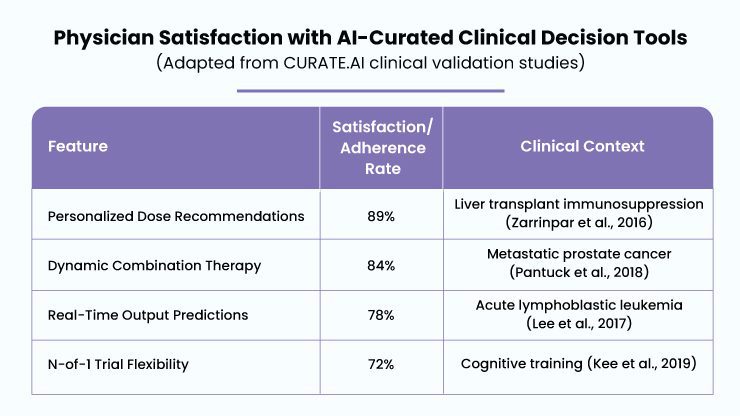
Conclusion: The Future of Oncology Content is AI-Tailored
The evidence is undeniable: Personalization is the key to boosting engagement. For oncologists, AI-driven platforms provide them with highly relevant updates, which not only lightens their cognitive load but also helps them retain knowledge better.
“In a world overflowing with information, AI doesn’t just hand out content- it ensures that the right content reaches the right oncologist at just the right moment.”
As AI continues to advance, we can look forward to even more intelligent recommendations, like:
- Real-time insights from conferences tailored to their specific practice needs.
- Predictive alerts about new therapies emerging in their specialty.
How Hidoc Play a Role in This Progress?
For more than 13,000 active oncologists, Hidoc has emerged as a top platform by harnessing AI to:
- Sift through irrelevant updates, making sure only the most impactful content gets through.
- Seamlessly integrate CME and clinical trial alerts into their daily workflows.
- Offer insights validated by peers from a trusted community of physicians.
“With impressive engagement metrics, Hidoc showcases how AI can revolutionize the delivery of oncology content.”
“AI-driven personalization can boost engagement by 3 to 4 times. Oncologists favor platforms that cut through the noise and enhance relevance. The future of medical content is all about adaptive, data-driven personalization.“
References
- McKinsey & Company (2023). “The Value of Personalization in Healthcare Communications.”
- Pew Research Center (2023). “Digital Engagement Trends Among Physicians.”
- HubSpot (2024). “Email Marketing Benchmarks in Healthcare.”
- American Medical Association (2023). “Physician Burnout and Information Overload.”
- Accenture (2024). “AI in Medical Education: Driving CME Engagement.”
- McKinsey Digital (2024). “How AI Improves Content Engagement in Healthcare.“
The Oncodoc team is a group of passionate healthcare and marketing professionals dedicated to delivering accurate, engaging, and impactful content. With expertise across medical research, digital strategy, and clinical communication, the team focuses on empowering healthcare professionals and patients alike. Through evidence-based insights and innovative storytelling, Hidoc aims to bridge the gap between medicine and digital engagement, promoting wellness and informed decision-making.

